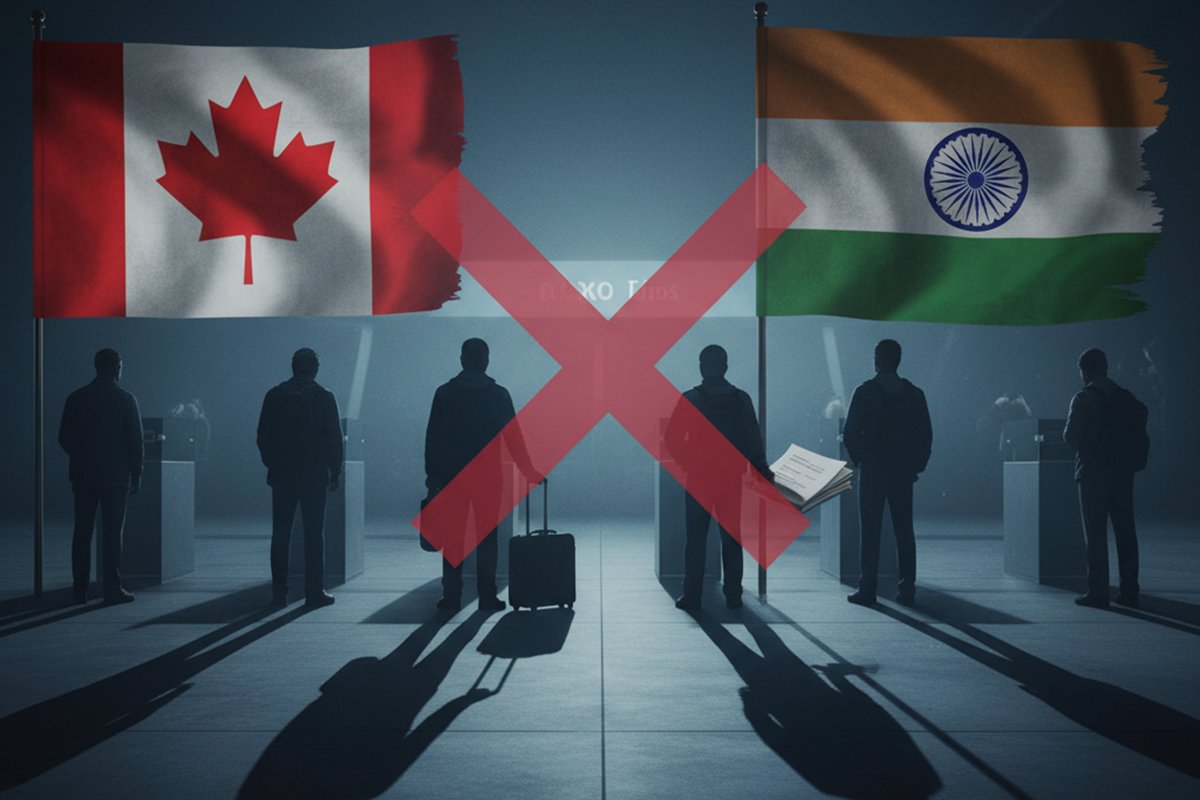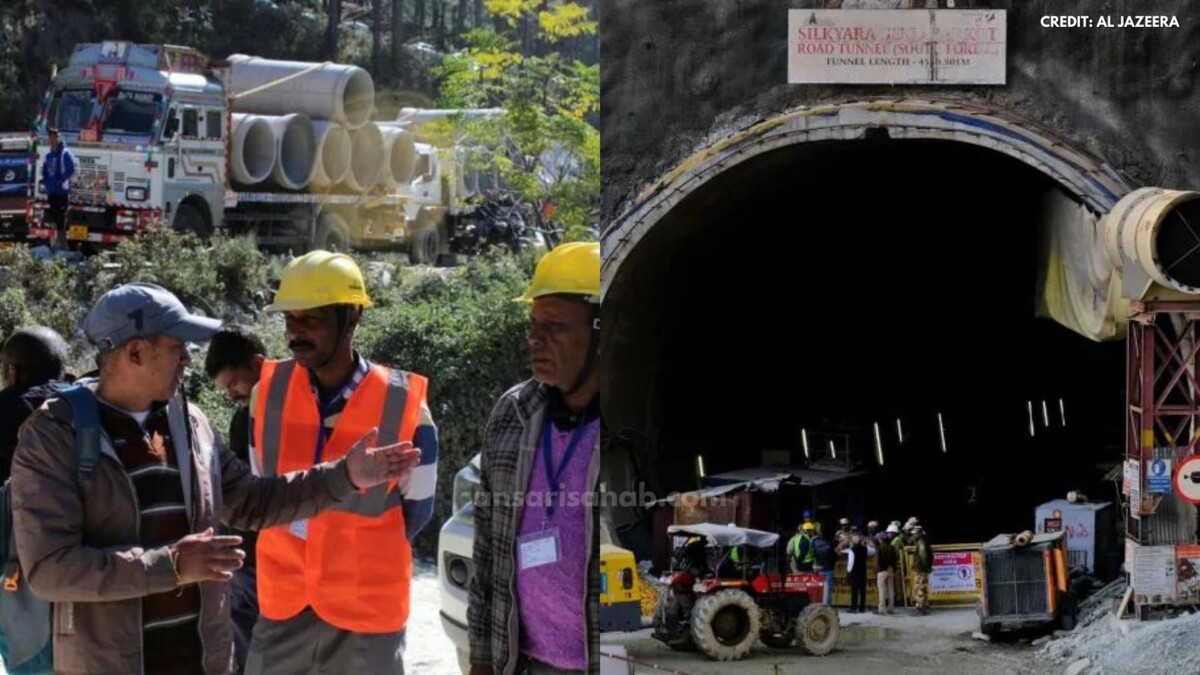In a sweeping policy shift, Canada is moving to grant its immigration authorities new powers to cancel groups of temporary visas in response to what it describes as increasing fraud — particularly applications originating from India and Bangladesh. According to internal government documents reviewed by Canadian media, the proposed legislation would allow mass visa revocations under broader “border integrity” provisions.
Context & Background
The move comes amid heightened scrutiny of visa applications and growing concern over fraudulent filings. A recent government data release shows that in August 2025, nearly 74 % of Indian applications for study permits were rejected — up from about 32 % in August 2023.
According to a presentation to ministers, the agencies noted a surge in asylum claims from Indian nationals — increasing from fewer than 500 per month in May 2023 to roughly 2,000 by July 2024.
The proposed cancellation powers are being introduced as part of Bill C-12, an offshoot of the broader “Strong Borders” legislation (originally Bill C-2), which seeks to modernise the country’s immigration and border-control laws.
What’s in the Legislation
The documents indicate that the visa-cancellation authority would permit the government to:
- Revoke or refuse all visas of a particular category if “abuse” is detected.
- Target applications from “country-specific visa holders” when flagged for systemic or large-scale risk.
- Use the measure during states of emergency — such as pandemics or war — but also potentially in non-emergency cases tied to fraud.
Immigration stakeholders say this could lead to “mass cancellations” of visas for temporary residents, international students, and visitors — though the government emphasises it is not targeting any one nationality.
Impact on Indian Applicants & Institutions
The changes carry wide-ranging implications, especially for Indian applicants and educational institutions:
- With a three-quarters rejection rate for Indian student permits, Canada’s universities and colleges have begun to see steep declines in enrolments from India.
- Processing times for Indian-origin visa applications have ballooned from about 30 days in mid-2023 to roughly 54 days by mid-2024, according to the internal data.
- The joint Canada–US working group cited forged acceptance letters and other documentation irregularities among Indian students, triggering heightened scrutiny.
Educational consultants say Indian candidates may now need to prepare far more robust documentation and financial proofs just to meet baseline requirements.
Why Canada Is Acting
Canadian officials say the policy changes are aimed at preserving the integrity and reliability of the temporary-visa system. As one internal memo put it: “The ability to cancel temporary resident documents reduces security risks and limits potential misuse.”
With increasing public concerns about immigration volumes, visa-fraud cases and resource burdens, the government is pitching the new powers as necessary tools — albeit ones that civil-society groups warn could lead to large-scale cancellations and deportations.
What It Means for Applicants & Institutions
For Indian nationals applying to Canada, the implications are clear:
- Expect stricter vetting, slower processing, higher rejection risks and tougher documentation requirements.
- Universities and colleges may face lower intake from Indian students and could shift recruitment to other markets.
- Applicants should prepare for enhanced checks (source of funds, academic veracity, travel history) and may benefit from professional guidance.
For Canada’s immigration system and receiving institutions, the shift means greater emphasis on verification, risk-management and possibly fewer approvals from flagged markets.
Looking Ahead
The proposed legislation is under parliamentary review; if passed, the “mass-cancellation” powers could become active within months. Observers will watch closely for how broadly the clause is applied — whether only in clear large-scale abuses or in routine applications.
Should Canadian institutions lose a significant share of Indian students, Canada may face reputational and economic repercussions — but it also may reduce the burden of managing large back-logs and potential abuse cases.
Conclusion
In sum, Canada’s aggressive move toward mass visa cancellation powers signals a tougher stance on what it terms “systemic fraud” in its temporary-visa streams. Indian applicants — who represent a substantial portion of Canada’s student intake — are among the first affected. While the government frames the push as a matter of security and system integrity, critics warn of over-reach and unintended consequences for genuine applicants and the broader educational ecosystem.









